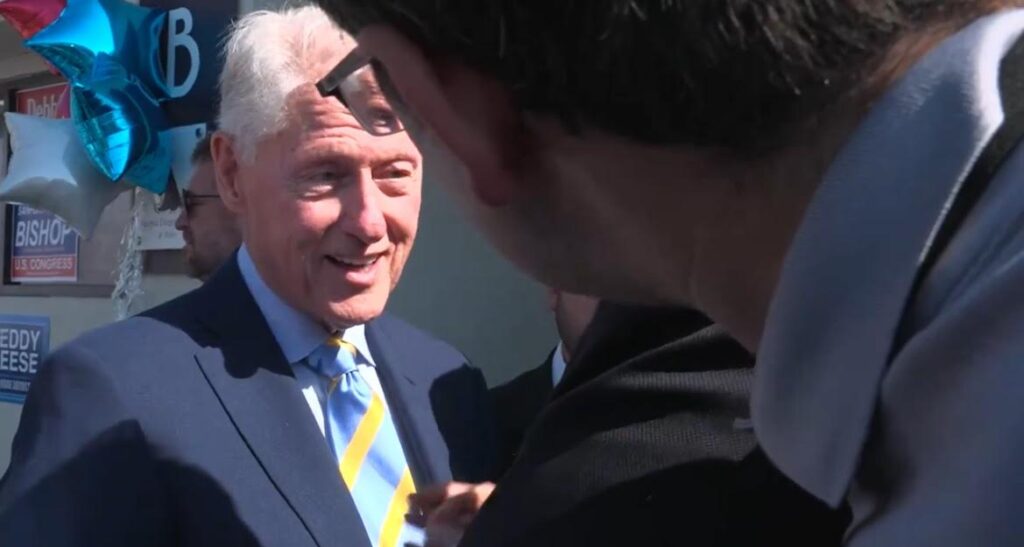Former President Bill Clinton actively campaigned for Vice President Kamala Harris in Georgia, just weeks ahead of the impending election. Speaking to a modest gathering in Columbus, Clinton emphasized the importance of Harris’s candidacy and the broader electoral effort. His presence was a significant draw for supporters, showcasing the ongoing battle for the Democratic ticket as the election approached. Clinton’s speech, however, was not without controversy, as he made remarks that underscored deep-seated issues surrounding immigration and demographic changes in the United States.
In an eye-catching moment during the rally, Clinton inadvertently brought attention to the contentious topic of the “Great Replacement Theory,” a notion often associated with fears about demographic shifts in favor of immigration. Clinton acknowledged the country’s declining birthrate, stating, “Most Americans recognize … we got the lowest birthrate we’ve had in well over a hundred years, we’re not a replacement level.” This comment opened the door for further discussion on how these demographic factors necessitate immigration to sustain economic growth, a point that many on the right view through a lens of cultural anxiety. His comments resonated with certain segments of the audience and have since sparked debate about the implications of these views.
After concluding his speech, Clinton engaged with ABC News reporter Gabe Gutierrez, who posed a question on what the election would hinge upon. Clinton replied that it would ultimately boil down to “Who wants it bad enough and whether we can get an honest, open count.” This statement raised eyebrows, as it seemingly cast doubt on the integrity of the electoral process just weeks before the vote. Critics quickly jumped on this comment, interpreting it as an indication of potential unrest regarding election legitimacy—a critical issue that has been central to political discourse in recent years.
The implications of Clinton’s statements did not go unnoticed in the political arena. Some, including GOP figures, were quick to label his remarks as a “threat to democracy,” signaling a broader concern that questioning the electoral process could fuel divisiveness in an already polarized political climate. The repercussions of suggesting that election outcomes might be manipulated or disputed have historically been significant, and such comments can heighten tensions as the election draws near.
Amidst this contentious environment, Clinton’s remarks reflect the complicated landscape of contemporary American politics, where issues of immigration, demographic change, and election integrity converge. The push for greater participation and equitable representation lies at the heart of the Democratic campaign, but this requires navigating sensitive topics that can ignite strong opinions across the political spectrum. The focus on these themes in the weeks leading up to the election is not merely strategic; it speaks to anxieties surrounding the nation’s demographic future and the economic model that relies heavily on immigration.
As Clinton continues to support Kamala Harris and emphasize the Democratic agenda, the unfolding narrative surrounding these themes will undoubtedly shape campaign strategies and voter sentiment in the lead-up to Election Day. The complex interplay of immigration, demographic evolution, and electoral integrity signifies a critical juncture for both parties, underscoring the challenges Democrats face in winning over undecided voters while addressing contentious issues that some in the electorate view as either existential threats or vital opportunities for progress. As history has shown, messaging around these subjects will be pivotal in determining electoral outcomes and shaping the longer-term outlook for the American political landscape.

